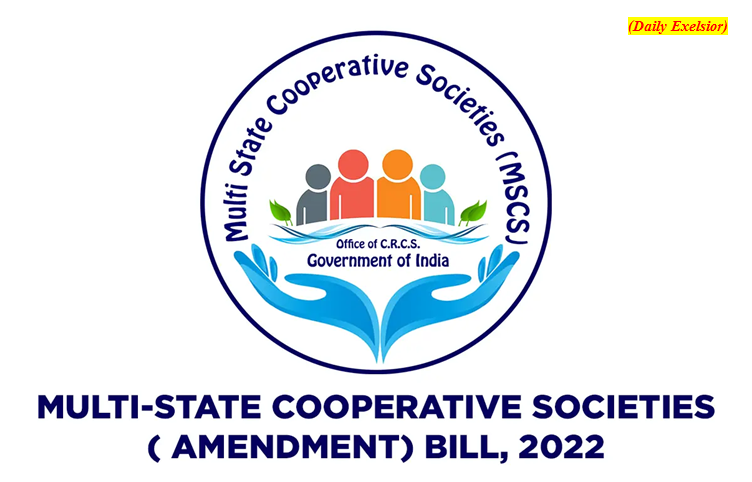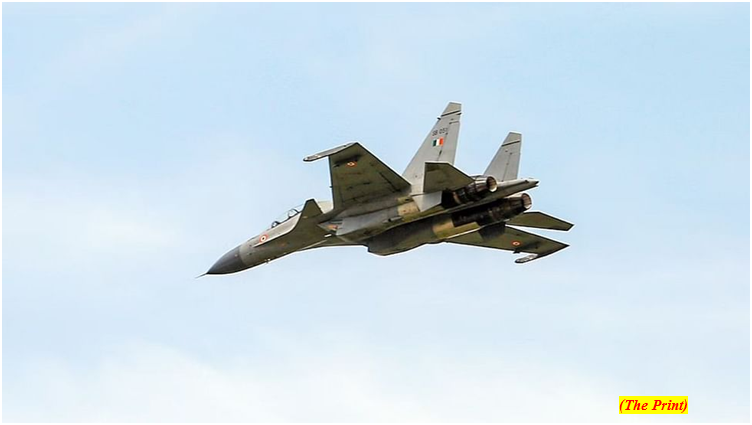Amendments to the Co operative Societies Act (GS Paper 3, Polity and Governance)

Why in news?
- The Lok Sabha recently referred the Multi-State Co-operative Societies (Amendment) Bill 2022 to a joint committee of Parliament.
- The Bill is aimed at overhauling the existing law, which was enacted 20 years ago.
What is a cooperative society, and who governs them presently?
- Cooperatives are organisations formed at the grassroots level by people to harness the power of collective bargaining in the marketplace. This can mean different kinds of arrangements, such as using a common resource or sharing capital, to derive a common gain that would otherwise be difficult for an individual producer to get.
- In agriculture, cooperative dairies, sugar mills, spinning mills etc. are formed with the pooled resources of farmers who wish to process their produce.
- Amul from Gujarat is perhaps the best-known cooperative society in India, but the numbers show their prevalence: there are nearly 2 lakh cooperative dairy societies and 330 cooperative sugar mill operations across the country.
- Cooperatives are a state subject under the Constitution, meaning they come under the state governments’ jurisdiction, but there are many societies whose members and areas of operation are spread across more than one state.
MSCS Act 2002:
- The existing law, the Multi-State Co-operative Societies Act (MSCS) of 2002 was enacted by the then Atal Bihari Vajpayee government for their management. Cooperatives of more than one state are registered under the MSCS Act.
- Their board of directors has representation from all states they operate in. Administrative and financial control of these societies is with the central registrar, with the law making it clear that no state government official can wield any control over them.
Why amend the existing law?
- Since 2002, many changes have taken place in the field of cooperatives. At that time, Cooperation was a department under the Ministry of Agriculture.
- However, on July 6, 2021, the government carved out a separate Cooperation Ministry and Shah became the first Cooperation Minister of the country. Soon after taking charge of the Ministry, he announced the bringing in of a new National Cooperative Policy.
- Part IXB was inserted in the Constitution, vide the Constitution (Ninety-seventh Amendment) Act, 2011. In view of insertion of the said Part, it has become imperative to amend the Act.
- Further, developments over the years also necessitated required changes in the Act so as to strengthen the co-operative movement in the multi-State co-operative societies.
New rules for merger:
- The Bill provides for the merger of “any co-operative society” into an existing multi-state co-operative society.
- Any co-operative society may, by a resolution passed by majority of not less than two-thirds of the members present and voting at a general meeting of such society, decide to merge into an existing multi-State co-operative society.
- At present, only multi-state cooperative societies can amalgamate themselves and form a new multi-state co-operative society.
Co-operative Election Authority:
- The Bill seeks to establish a “Co-operative Election Authority”, with a view to bring “electoral reforms” in the co-operative sector.
- As per the proposed amendment, the authority shall consist of a Chairperson, a Vice-Chairperson and members not exceeding three to be appointed by the Centre.
Who can be appointed the chairperson of the authority?
- As per the proposed amendments, a person shall not be qualified for appointment as Chairperson of the Authority unless he has held the post of Additional Secretary to the Government of India or equivalent rank; Vice-Chairperson of the Authority unless he held the post of Joint Secretary to the Government of India or equivalent rank; and Member unless he fulfils such qualification and experience as may be prescribed.
- The Chairperson, Vice-Chairperson or Member of the Authority will hold office for three years or until they attain the age of 65 years, whichever is earlier, and they shall be eligible for re-appointment, according to the proposed Section 45(4).
What was the Constitution (Ninety Seventh Amendment) Act, 2011?
- Through the 97th constitutional amendment, Part IXB (The Co-Operative Societies) was inserted into the Constitution. The right to form cooperative societies was included as Right to Freedom under article 19 (1), Part-3 of the Constitution.
- In addition to this, Article 43-B (Promotion of Cooperation societies) was also inserted as one of the Directive Principles of State Policy under Part 4 of the Constitution of India.
Ombudsman to have powers like Civil Court
- The government has proposed to insert a new Chapter IXA relating to “redressal of complaints”.
- Under this new chapter, the government has proposed to appoint one or more “Co-operative Ombudsman” with a territorial jurisdiction for inquiring into the complaints made by the members. For this, a new section 85 will be added to the law.
Fund for the revival of sick co-operative societies
- The Bill also seeks to insert a new section 63A in the principal Act, relating to “establishment of the Co-operative Rehabilitation, Reconstruction and Development Fund” for revival of “sick multi-State co-operative societies”.
- It also proposes to insert a new section 70A relating to “concurrent audit” for multi-state co-operative societies having an annual turnover or deposit of more than the amount as determined by the Central Government.
Cooperative Information Officer
- The Centre has also proposed to make provisions for “appointment of a Co-operative Information Officer” to provide information relating to affairs and management of the multi-state co-operative society to the members of such society.
Way Forward:
- The Bill was introduced on December 7, when Opposition members argued that it seeks to “take away” state governments’ rights, and demanded that it be sent to the standing committee.
Panel formed for measures to promote export of telecom equipment
(GS Paper 3, Economy)
Why in news?
- An expert committee has been constituted by the Department of Telecommunications (DoT) to recommend measures to promote the export of domestically-manufactured equipment.

Background:
- The department of telecommunications issued an amendment in Telecom Licenses on March 3, 2021, wherein, all licensees have been directed to connect only trusted products in their telecom networks with effect from June 6, 2021.
- A portal has been launched which facilitates evaluation of telecommunication equipment as trusted products and intimation of the same to licensees.
PLI Scheme:
- The domestic telecom manufacturing industry is being incentivised via schemes like production-linked incentive (PLI) and Public Procurement Preference (PPP-MII).
- PLI scheme aims to incentivise manufacturing of telecom and networking products within the country whereas PPP-MII Policy provides preference to domestic manufacturers in public procurement.
HS Codes:
- The government has taken steps for streamlining and categorising the HS Codes so as to avoid mislabelling of imported items.
- HS code is a common standard worldwide for classifying traded goods, which is used by 98 per cent of import and export trades worldwide in assessing duties.
India Japan to conduct 1st bilateral air combat exercise next month to enhance mutual skills
(GS Paper 3, Defence)
Why in news?
- In a key move, India and Japan will carry out their maiden bilateral air combat exercise early 2023 seeking to increase the interoperability between the two countries amid tensions with China.

Details:
- The exercise will be carried out from 16 January to 26 January at the Hyakuri Air Base and its surrounding airspace in Omitama, and the Iruma Air Base in Sayama.
- The aim of the combat exercise with Japan Air Self Defense Force (JASDF) was to strengthen defence cooperation between the forces, enhance tactical skills and promote mutual understanding.
India & Japan Exercises:
- India and Japan do conduct both Army and Navy level exercises.
- In February 2022, both armies came together for “EX DHARMA GUARDIAN-2022” in Belagavi, Karnataka, where they trained in house-interventions drills, raid on terrorist hideouts in semi-urban terrain, combat first aid, unarmed combat and close-quarter combat firing.
- The bilateral Army exercise was started in 2018 while the Indian Navy has been conducting the Japan India Maritime Exercise (JIMEX), every year since 2012.
- The primary focus of the naval exercise has been on anti-submarine warfare and Air Defence tactics.
Japan’s new defence policy:
- Japan, which has largely remained pacifist since World War II, is now increasingly focusing on defence preparedness.
- Earlier, Japan unveiled its USD 320 billion security strategy which includes drastically expanding its defence capabilities and developing new “counter strike” capabilities.
- The surprising five-year plan will make Japan the world’s third-biggest military spender after the United States and China, based on current budgets.




